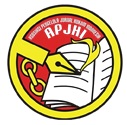ZAKAT SEBAGAI ALTERNATIF PENDAPATAN NEGARA
(1) Badan Pendidikan dan Pelatihan Keuangan
(*) Corresponding Author
Abstract
Zakat and tax have some similarities in function and role. Researches related to zakat only focus on the management and calculation method. There are still limited studies that discuss the possibility of Zakat being used as an alternative to state revenue. Therefore, this study aims to fill this gap by making a study of the possibility of zakat being used as a source of state revenue. This study uses a qualitative approach by reviewing various kinds of literature related to zakat management in various countries. The pieces of literature are processed using the procedure developed by Taylor (2017). The procedures are (1) organize; (2) synthesize, and (3) identify. Through this study, the results show that it is legally possible to include zakat as an alternative to receiving and can be used for social programs. the use of funds from zakat can be classified as restricted funds which can only be used for programs that comply with Islamic regulations. This research can be used as input to the Government to include zakat as state budget revenues. Â
Keywords: Zakat; State Revenue; Syaria.
Full Text:
PDFReferences
Abdain. (2014). Peran Sistem Ekonomi Islam dalam Menanggulangi Tingkat Kesenjangan Sosial. Jurnal Muamalah, 4(2), 15–26.
Alam, A. (2018). Permasalahan dan solusi pengelolaan zakat di Indonesia. Jurnal Manajemen, 9(2), 128. https://doi.org/10.32832/jm-uika.v9i2.1533
Alim, M. N. (2015). Utilization and Accounting of Zakat for Productive Purposes in Indonesia: A Review. Procedia - Social and Behavioral Sciences, 211(September), 232–236. https://doi.org/10.1016/j.sbspro.2015.11.028
Andri, A. (2020). Sentralisasi Pengelolaan Zakat di Indonesia. Jurnal An-Nahl, 7(2), 145–151. https://doi.org/10.54576/annahl.v7i2.21
Asmawi, S. (2017). Zakat Sebagai Kekuatan Ekonomi Umat (Selfietera (ed.); Pertama). Phoenix Publisher. https://idr.uin-antasari.ac.id/16580/1/10. zakat - sebagai kekuatan ekonomi umat.pdf
BAZNAS. (2018). Outlook Zakat Indonesia 2019. Pusat Kajian Strategis – Badan Amil Zakat Nasional (PUSKAS BAZNAS).
Canggih, C., Fikriyah, K., & Yasin, A. (2017). Potensi Dan Realisasi Dana Zakat Indonesia. Al-Uqud : Journal of Islamic Economics, 1(1), 14. https://doi.org/10.26740/al-uqud.v1n1.p14-26
Cokrohadisumarto, W. bin M., Zaenudin, Z., Santoso, B., & Sumiati, S. (2020). A study of Indonesian community’s behaviour in paying zakat. Journal of Islamic Marketing, 11(4), 961–976. https://doi.org/10.1108/JIMA-10-2018-0208
Doktoralina, C. M., & Bahari, Z. (2018). Zakat accounting information system in private higher education. European Research Studies Journal, 21(3), 265–275.
Fajarudin, I. (2019). Kontribusi zakat sebagai pendapatan negara dan instrumen penerimaan pajak ( studi interpretif ). Paradigma Accountancy, 2(1), 25–38.
Hafizd, J. Z., & Mardiatta, D. (2021). Urgensi Zakat, Infak, Dan Sedekah Di Masa Pendemi Covid-19 Prespektif Maqasid Syariah. Al-Mustashfa: Jurnal Penelitian Hukum Ekonomi Syariah, 6(2), 215. https://doi.org/10.24235/jm.v6i2.9186
Jaelani, A. (2016). KEUANGAN PUBLIK ISLAM: Refleksi APBN dan Politik Anggaran di Indonesia. In MPRA Paper No. 69652 (1st Editio, Issue 69652). Nurjati Press IAINSyekh Nurjati Cirebon. https://doi.org/10.13140/RG.2.1.1019.8800
Keuangan, K. (2013). Dasar-Dasar Praktik Penyusunan APBN di Indonesia. In Purwiyanto (Ed.), Kementerian Keuangan (1st ed.). Kementerian Keuangan. https://doi.org/10.1017/CBO9781107415324.004
Kuba, A. (2015). Model-Model Pengelolaan Zakat Di Dunia Muslim. Ahkam: Jurnal Hukum Islam, 3(1). https://doi.org/10.21274/ahkam.2015.3.1.137-164
Lestari, E. P. (2018). Sistem Keuangan Pusat dan Daerah (A. G. Brata (ed.); 2nd ed.). Universitas Terbuka.
Masyita, D. (2018). Lessons Learned of Zakat Management from Different Era and Countries. Al-Iqtishad: Jurnal Ilmu Ekonomi Syariah, 10(2), 441–456. https://doi.org/10.15408/aiq.v10i2.7237
Nurfiana, N., & Sakinah, S. (2022). Zakat Dan Kajiannya Di Indonesia. Milkiyah: Jurnal Hukum Ekonomi Syariah, 1(1), 21–25. https://doi.org/10.46870/milkiyah.v1i1.158
Obaidullah, M. (2016). Revisiting estimation methods of business zakat and related tax incentives. Journal of Islamic Accounting and Business Research, 7(4), 349–364. https://doi.org/10.1108/JIABR-10-2014-0035
Owoyemi, M. Y. (2020). Zakat management: The crisis of confidence in zakat agencies and the legality of giving zakat directly to the poor. Journal of Islamic Accounting and Business Research, 11(2), 498–510. https://doi.org/10.1108/JIABR-07-2017-0097
Sari, D. S., & Muttaqin, Z. (2019). Zakat dan Keamanan Ekonomi Negara dalam Hubungan Internasional. Jurnal Masyarakat Dan Filantropi Islam, 2(1), 22–29. http://jurnal.unpad.ac.id/jmfi/article/view/25298
Subekan, A. (2016). Potensi Zakat Menjadi Bagian Keuangan Negara. Jurisdictie: Jurnal Hukum Dan Syariah, 7(2), 105–126.
Sukmadinata, N. S. (2013). Metode Penelitian Pendidikan. In Metode Penelitian Pendidikan (9th ed.). PT Remaja Rosdakarya.
Syafiq, A. (2016). Urgensi Peningkatan Akuntabilitas Lembaga Pengelola Zakat. Ziswaf, 3(1), 18–38.
Taylor, D. (2017). The Literature Review - A Few Tips On Conducting It | Writing Advice. Writing Advice, 5 June. http://advice.writing.utoronto.ca/types-of-writing/literature-review/
Wibisono, Y. (2015). Mengelola Zakat Indonesia Diskursus Pengelolaan Zakat Nasional dari Rezim Undang-Undang Nomor 38 Tahun 1999 ke Rezim Undang-Undang Nomor 23 Tahun 2011. Kencana.
DOI: 10.24235/jm.v7i2.11761
Article Metrics
Abstract view : 44 timesPDF - 6 times
Refbacks
Al Mustashfa Indexed by:
Reference Management Tool

This work is licensed under a Creative Commons Attribution 4.0 International License.













